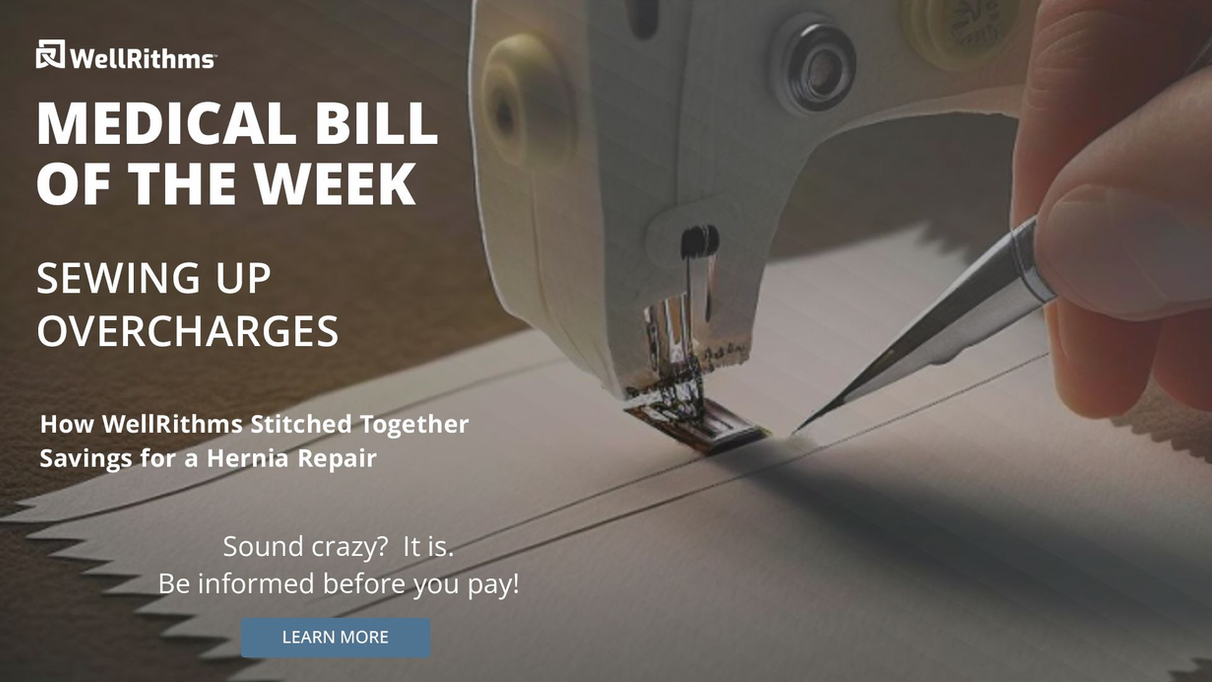
This week at WellRithms, we reviewed a medical bill for a 49-year-old male who underwent a primary umbilical hernia repair. During the procedure, the surgeon sewed the hernia closed using sutures only, but the hospital attempted to bill for a mesh implant. However, our medical bill review team caught this overcharge and denied the implant charge of $1,836.74.
The key to identifying this overcharge was a combination of understanding the term “primary repair” and examining the operative notes. “Primary repair” means that the hernia was repaired using sutures alone and did not require an implant. The operative notes provided a comprehensive record of the procedure and confirmed that no implants were used, ensuring that only necessary and performed procedures were billed.
According to Jesse Nguyen, M.D. Associate Medical Director at WellRithms. “Comparing the operative notes to the billed charges is critical for accurate medical bill review. These notes serve as a detailed account of the procedure and help us verify that the charges match the services provided. Our goal is to protect our clients from overpaying for medical procedures, and the operative notes are a valuable tool in achieving that.”
Thanks to the denial of the implant charge and re-pricing of the remaining bill, WellRithms was able to reduce the total charge from $17,089.21 to $5,336.89. We are proud to help self-funded employers control medical costs and prevent overpayment through thorough medical bill review.
